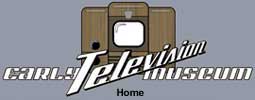 |
 |
60 line Nipkow Disc Television Machine
 |
 |

- 16 inches Nipkow disc. One spiral of 60 holes (1/3rd millimeter in diameter).
- Lighting source: Amber leds array (25 x 10.000mcd).
- Frame frequency: 25 per sec.
- Disc speed: 1500 rpm. driven by synchronous motor.
- Image ratio: 4/3. Sweeping from left to right, top to bottom.
- The machine box made by Michel Neige, is a wallnut plywood housing which style is inspired from the TEKADE 1932.
Learn more about the machine and history.
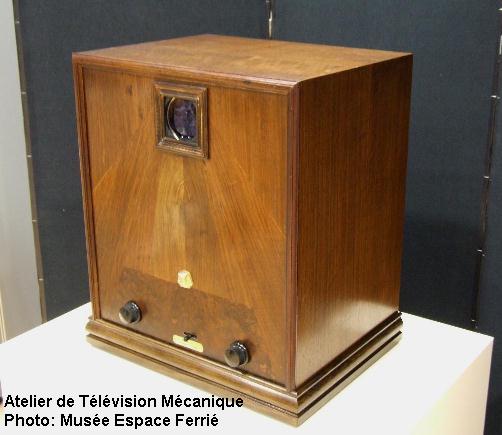
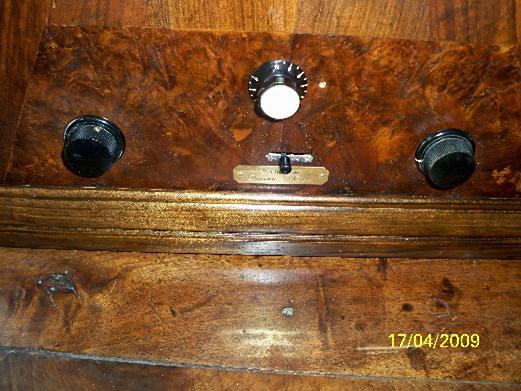
View of the front commands. From left to right:
- Gamma control
- up center=video gain - down center=motor stop knob for image horizontal framing
- Brightness control
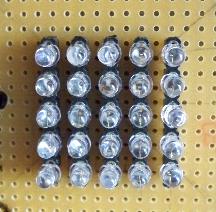
Panel of 25 leds providing image light (250.000 mcd).
Only a small part of this light passes through the Nipkow disc.
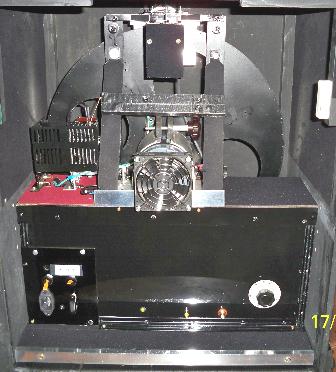
Rear View
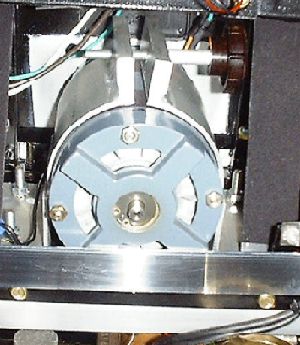
Special assembly of the synchronous motor, allowing to turn it on itself, in order to frame the image
Video clip of a 1934 film excerpt reproduced in 60 lines by the machine.
The quality of the image may be affected by different compression algorithms during further processing
Michel Bromberg presenting Fernandel's first films (circa 1930)
Previous
Next